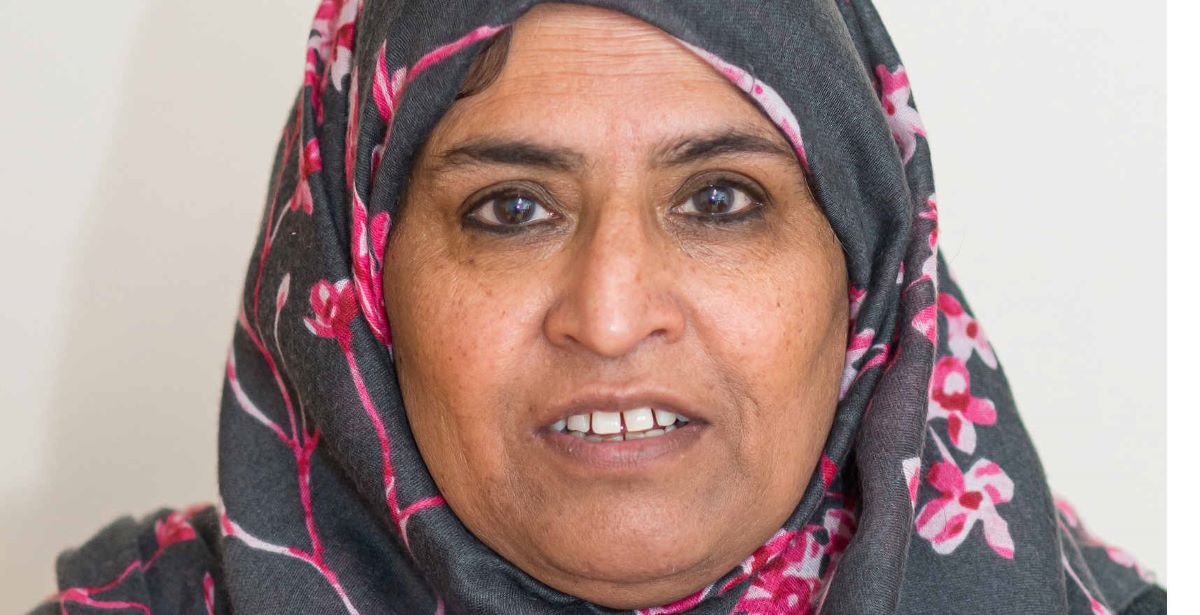I came to Rotherham 37 years ago. I met many young women experiencing domestic violence and was frustrated that there were no adequate services. I’d heard about a women’s cooperative in India working on ending domestic violence and thought if women in India, of my heritage, can do it, I can do something here in the UK.
In 1994, I won funding to set up Apna Haq (‘our right’ in Urdu), an anti-racist organisation supporting black and minoritised women facing violence in Rotherham. Myself and two other women, one Indian and one Chinese, set up a steering committee. We quickly realised black and minoritised women didn’t have the same rights. Numerous women had no recourse to public funds and no domestic violence concession was in place. We held banner-making workshops with local women and rallies outside the Home Office.
Over 60 women, aged 16 to 60, came to our first conference. When we asked them, ‘Is domestic violence an issue?’ they said, ‘Of course – what are you doing about it?’ We held a conference every year where women talked about the support they received. Having gained an understanding of the trauma women can be put through by sharing their stories, we wouldn’t get public testimonies from survivors now. At the time we wanted to give women confidence that there is an alternative.
We’ve grown as an organisation as Rotherham’s communities have changed. When I first came to Rotherham, 95 per cent of the people we saw were Pakistani. Now there are 30 or 40 nationalities, including refugees and people from EU communities. Active women from different communities often become part of Apna Haq’s management committee.
Rotherham is tiny. If a woman has family looking for them, we advise them to move. Sheffield is larger and it would be difficult to track you down. There is an LGBTQ forum in Rotherham (though the majority of them are white), where we signpost LGBTQ young women for specialist support – often it’s not safe to come out in Rotherham.
Black and minoritised women’s organisations have lost their funding. Often only generic refuges are available. A woman will go and there’s nobody that speaks their language, the refuge will ring us and we will have to translate. Organisations like ourselves have more to do to try and keep women safe.
Twenty-five years ago people weren’t used to seeing somebody visibly Muslim in these spaces
Our work involves challenging stereotypes. Many times when I’ve been invited to speak, people’s jaws have dropped when I walk in. Twenty-five years ago people weren’t used to seeing somebody visibly Muslim in these spaces. In 2016, we held the first national conference on feminism, spirituality and activism, challenging the white feminist notion that any woman that covers is oppressed. We need feminisms, not just feminism.
During the Rotherham 12 case [when a group of Pakistani men were charged with violent disorder for defending themselves against far-right racists], Apna Haq stood by the men in our community against Islamophobia. I had elderly men stop me in the street to thank me. Our main focus will always be supporting women and children and keeping them safe. But where we come across racism, we will use our power and influence as an organisation to stand by people so that they get justice.
Zlakha Ahmed was speaking to Ananya Wilson-Bhattacharya










